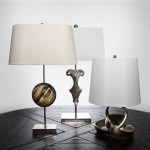Interior Design Certifications: A Guide to Enhancing Your Career
The field of interior design offers a blend of creativity, functionality, and technical expertise. For aspiring and established professionals alike, pursuing interior design certifications can be a valuable investment. These credentials demonstrate a commitment to professional development, enhance credibility, and open doors to new opportunities. This article provides an overview of interior design certifications, exploring their benefits, types, and considerations for obtaining them.
Benefits of Interior Design Certifications
Obtaining interior design certifications offers a range of advantages for professionals in the field. Some key benefits include:
- Enhanced Credibility: Certifications from reputable organizations signal to clients and employers that you possess the necessary knowledge and skills to deliver high-quality design services. This can boost your reputation and increase client trust.
- Professional Recognition: Certifications validate your expertise and professionalism, setting you apart from competitors who may not have similar qualifications. This can lead to increased visibility and opportunities.
- Career Advancement: Many employers prefer candidates with certifications, as it demonstrates a commitment to professional growth. Certifications can create opportunities for promotions, salary increases, and access to leadership roles.
- Expanded Knowledge Base: Certification programs often delve into specific areas of interior design, providing professionals with in-depth knowledge of design principles, building codes, materials, and sustainability practices. This can broaden your skillset and equip you to address diverse project needs.
- Networking Opportunities: Certification programs often offer networking opportunities with other professionals in the field. These connections can lead to collaboration, mentorship, and valuable industry insights.
Types of Interior Design Certifications
Several organizations offer interior design certifications, encompassing different areas of specialization and levels of expertise. Common types of certifications include:
- General Interior Design Certifications: These certifications cover foundational principles of interior design, design software, project management, and client communication. They are suitable for aspiring designers or those seeking a broad overview of the field.
- Specialized Certifications: Some organizations offer certifications in specialized areas like residential interior design, commercial interior design, sustainable design, or universal design. These certifications cater to professionals who want to deepen their expertise in a specific niche.
- Professional Membership Certifications: Organizations like the American Society of Interior Designers (ASID) and the International Interior Design Association (IIDA) offer membership credentials that demonstrate adherence to ethical standards and professional practice. These certifications often require professional experience and a portfolio review.
- Software Certifications: Certifications specific to interior design software like AutoCAD, Revit, or SketchUp can enhance your technical skills and demonstrate proficiency in using popular design tools.
Choosing the Right Interior Design Certification
Selecting the right interior design certification depends on your individual goals, current skills, and career aspirations. Consider the following factors:
- Your Career Goals: Determine if you are seeking entry-level certification, specialization in a particular area, or professional membership credentials. Align your certification choices with your career trajectory.
- Accreditation and Reputation: Research the accreditations and reputation of certification organizations. Look for organizations recognized by industry leaders and professional associations.
- Program Content and Structure: Evaluate the curriculum and course delivery methods. Ensure the program aligns with your learning style and meets your specific needs.
- Cost and Time Commitment: Factor in the costs associated with the certification program, including tuition, exam fees, and materials. Consider the time commitment required for coursework, study, and exam preparation.
Obtaining interior design certifications can be a significant investment in your professional journey. By carefully considering your goals, researching reputable organizations, and choosing programs that align with your needs, you can gain valuable credentials that enhance your credibility, expand your expertise, and unlock new career opportunities.

Certified Interior Designer Requirements Ccidc Inc
-for-Interior-Designers-in-2024.webp?strip=all)
Interior Design Certificate Programs Bak Una Edu Ar

Create Interior Design Curriculum
.webp?strip=all)
Interior Design Certifications Bak Una Edu Ar

8 Best Interior Design Courses In 2024 And Academy

Interior Design Certification The Best Programs Available Laskasas

Chief Architect Certification

Flagship Student Learning

Maintaining Interior Design Accreditation

15 Tips And Skills To Become A Successful Interior Designer Foyr








